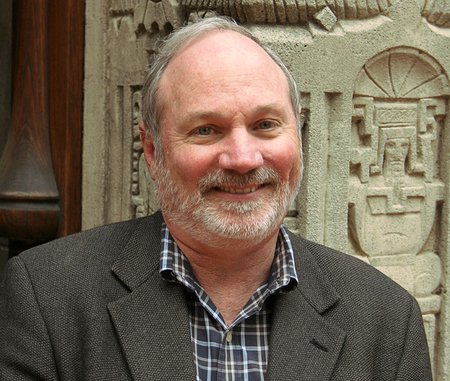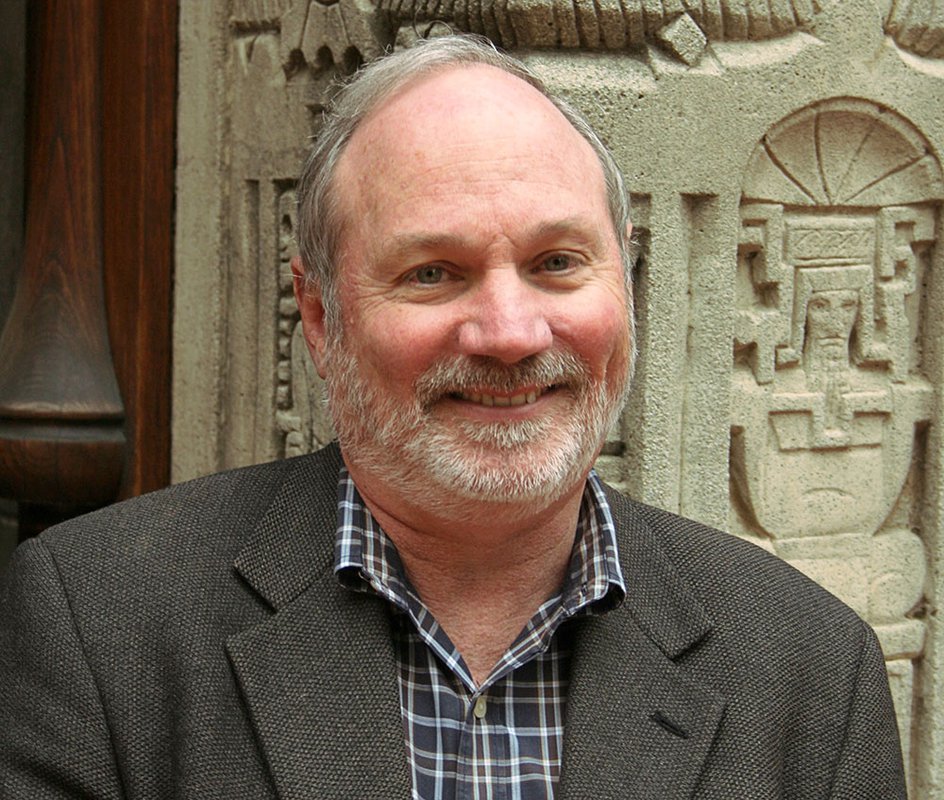Caltech's Dennis Dougherty, the George Grant Hoag Professor of Chemistry, has been named director of the Beckman Institute, an interdisciplinary research center for the development of innovative technologies used in chemistry and biology, including advanced imaging, laser spectroscopy, and X-ray diffraction.
"I'm delighted that Dennis has agreed to assume the directorship of the Beckman Institute," says former director David Tirrell, the Ross McCollum-William H. Corcoran Professor of Chemistry and Chemical Engineering at Caltech, who became Caltech's tenth provost last October. "He is a brilliant chemist, he has a deep understanding of Caltech and its faculty, and he already knows the Beckman Institute well from his service as a member of its executive committee."
"Dave Tirrell has done an outstanding job as director of the Beckman Institute, and we thank him for his great service," says Jacqueline K. Barton, the John G. Kirkwood and Arthur Noyes Professor of Chemistry and Norman Davidson Leadership Chair of the Division of Chemistry and Chemical Engineering. "We now look forward to Dennis Dougherty filling this leadership role as director. Dougherty's pioneering research in chemical biology coupled with his background in physical organic chemistry will serve him well in leading the Beckman Institute to advance new technologies and new methods for research at the interface of chemistry and biology."
The Beckman Institute was established in 1986 with an initial $50 million commitment and challenge from the Arnold and Mabel Beckman Foundation. The nearly 160,000-square-foot Beckman Institute building on the west end of campus opened in 1989, with Harry Gray, the Arnold O. Beckman Professor of Chemistry, as the founding director. The institute's mission is "to invent methods, instrumentation, and materials that will open new avenues for fundamental research in the chemical and biological sciences, and to provide technological support for these efforts."
"Because Caltech is a small campus, it can be a challenge to build big facilities with the latest technologies," says Dougherty. "The Beckman Institute lets us keep a pulse on the most important new techniques and bring them to Caltech. We're driven from the ground up: faculty, from young to experienced, can propose new ideas, and we carefully choose what's best for the campus."
Technologies housed at the Beckman Institute include advanced imaging, laser spectroscopy and X-ray diffraction, synthesis and characterization of novel organic and inorganic materials, and advanced mass spectroscopic methods for characterization of large biomolecules. An example of one of the institute's many resource centers is CLOVER (Clarity, Optogenetics and Vector Engineering Research Center), which, among other functions, helps Caltech researchers render tissues transparent for better imaging.
"The Beckman Institute brings cutting-edge technologies to the biologists and chemists of Caltech," says Dougherty. "Our past directors have done a great job of picking where to focus our efforts and what technologies to invest in."
Dougherty has been a professor of chemistry at Caltech for nearly 40 years. He joined as an assistant professor in 1979, became an associate professor in 1985, a full professor in 1989, and the Hoag Professor in 2002. He received his bachelor's and master's degrees from Bucknell University in 1974, and his PhD from Princeton University in 1978.
Dougherty's research is largely in chemical biology, a field in which the tools of chemistry are applied to biological problems, such as how drugs like nicotine bind to receptors in our brains. His group uses a variety of chemical methods to study the function of ion channels and neuroreceptors—proteins in the brain targeted by drugs for the treatment of many disorders, such as Alzheimer's disease, Parkinson's disease, schizophrenia, and learning and attention deficits.
One method the group uses involves replacing amino acids in a protein with amino acids that are not found in nature. By creating a protein with unnatural amino acids, the researchers can then watch how the protein's function changes and learn more about role of the original amino acid.
Harry Gray was the Beckman Institute director from 1986 to 2001. Barbara Wold, Bren Professor of Molecular Biology, served in the role from 2001 to 2011, and Tirrell from 2011 to 2018.
 Dennis Dougherty, the new director of the Beckman Institute at Caltech.
Credit: Caltech
Dennis Dougherty, the new director of the Beckman Institute at Caltech.
Credit: Caltech

